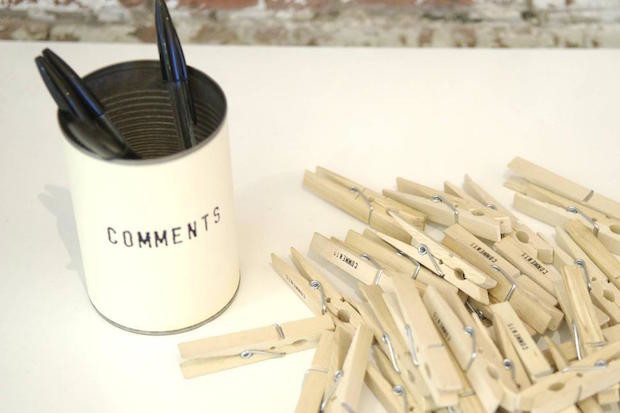At a time when the number of news organisations shutting down their comments in favour of social media seems to be growing, The Washington Post is putting more effort into making the most of these spaces and highlighting valuable contributions from its readers.
Starting tomorrow (13 January), The Post will be sending a weekly newsletter called 'Read these comments', which aims to showcase the most thoughtful conversations from across washingtonpost.com every Friday.
"We really try to treat the comments section here as our own social network that we can control," Tessa Muggeridge, newsletter and alerts editor at the Washington Post, told Journalism.co.uk.
"We recognise there are a lot of problems with comments on the internet, but there's also an incredible amount of positive discourse that is sometimes buried and hard to find."
'Read these comments' will have three parts: it will highlight a discussion around a specific topic or event that has "taken the comment section by storm" that week, followed by a selection of individual popular comments which Muggeridge said often tend to go viral online but that are not that easy to spot.
Lastly, it will feature recommendations for stories where readers' submissions are needed, such as this post from media columnist Erik Wemple asking people to contribute their questions about the mainstream media, based on which he will write a number of articles "explaining the kind of shop talk that people might not understand".
The newsletter will be manually curated by Teddy Amenabar, comments editor at The Washington Post, who will choose the most valuable contributions by looking at a number of factors, including most liked comments, comments that have sparked a debate, or thoughts from people who are regularly interacting in this space. He also hopes readers themselves will flag interesting comments from their peers to be featured every Friday.
Amenabar told Journalism.co.uk The Post has recently been highlighting interesting comments on more stories through a featured tab once or twice a day, and the ones that will make it into the newsletter will take into account roughly the same parameters or even coincide.
But he also wanted the newsletter to be flexible, so the section that highlights individual contributions can feature thoughts from people on stories that are not necessarily the most popular or the ones to attract the bulk of The Post's commenters.
"I'm looking for comments that really summarise the discussion but not just that, comments that also have an interesting view point that might not be said a lot.
"We have stories that are generally more active conversations, not necessarily the stories that have the most readers, but certain topics like parenting, local sports, politics.
"These are areas where we already know we should be looking, but this newsletter is a great experiment to keep exploring where readers are engaging and to actively listen and make it a part of your day as a journalist to see where and what people are saying."
Since the announcement was made yesterday, people have already started subscribing to the newsletter and providing feedback on format and how comment selection is made.
The Post regularly asks its readers about their online commenting experience, keeping a record of their suggestions, and many of the changes the news organisation has implemented to improve the experience actually came from the audience.
Muggeridge said The Post has a "really long wishlist of changes to make in the comments section" and will be rolling out some new tools and features later in the year.
"I think it's important to say that we are not looking for comments that compliment us, we're looking for discourse, even if it's criticism of our journalism that is brought up in a thoughtful way.
"There is this idea that internet commenters are anonymous people sitting in basements and that is just not true. For us, a huge portion of them are washingtonpost.com subscribers and they're our most loyal readers," she added.
Free daily newsletter
If you like our news and feature articles, you can sign up to receive our free daily (Mon-Fri) email newsletter (mobile friendly).
Related articles
- Washington Post opinions editor David Shipley on gearing up for the US election
- Washington Post releases year-in-review feature for subscribers
- From Reuters to The New York Times, Big Oil pays 'most trusted media brands' to push greenwashing
- The Washington Post discovers an engaged gaming audience
- Four digital media trends to watch: generative AI, Gen Z, business models and news formats












